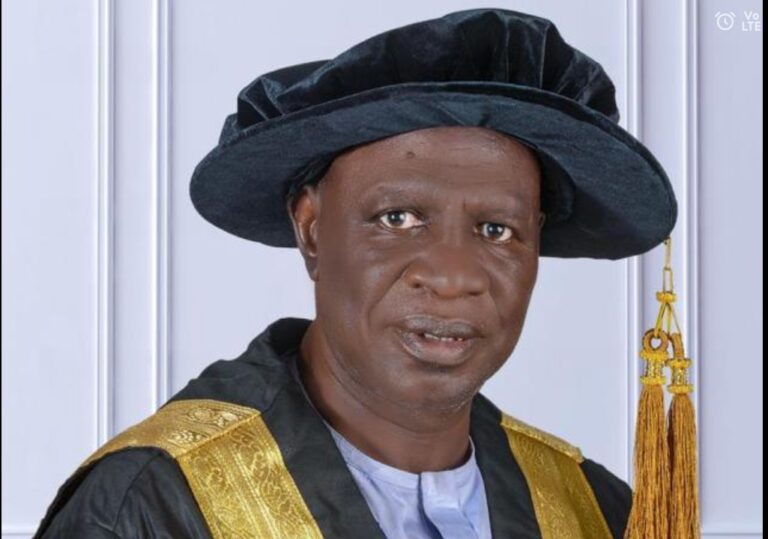The Great ABU Zaria @63: Forward Ever 2 By Prof. MK Othman

The Great ABU Zaria @63: Forward Ever 2
By Prof. MK Othman

As mentioned in this column last week, no university in Nigeria has as many professors as ABU Zaria today. Certainly, ABU Zaria experienced significant intellectual growth as a hub of learning. Thanks to the tenurial progressiveness of Prof. Garba, who placed the university on autopilot, surmounting obstacles, to reach its goals. Have his legacies continued? What are its current challenges and prospects? What is the situation at ABU Zaria today? Is the university achieving the vision of its founding fathers? How can Abusites and their friends support ABU Zaria in its continued advancement?
Prof. Kabiru Bala, a former DVC, former Dean of the Postgraduate School, and former Director of Academic Planning, took on leadership on 30th April, 2020. The process that led to Prof. Bala’s appointment left much to be desired, prompting the university council to form a committee to investigate alleged infractions. The first three years of his tenure were disrupted by approximately six months of lockdown due to the COVID-19 pandemic and six- to eight-month periods of industrial action in 2020 and 2022, respectively. Additionally, the tenure was plagued by inadequate funding, worsened by the legal garnishment of over a billion Naira of university funds and a month-long power outage caused by the university’s inability to pay its electricity bills. The leadership also appeared to focus on settling scores against perceived enemies and those deemed disloyal. Leading a university like ABU Zaria is an enormous responsibility that is challenging even under ideal conditions, let alone amidst natural disasters, industrial disputes, and internal vendettas. The outcome was as unpleasant as can be imagined. Consequently, some of the legacies left by Prof. Garba were put on hold. During this period, the university’s progress slowed significantly, sometimes nearly coming to a standstill. Nevertheless, ABU Zaria, a resilient and determined institution, continued to advance despite these challenges. The University Ranking by Academic Performance (URAP) of 2024 ranked ABU as the third best in Nigeria, 21st in Sub-Saharan Africa (SSA), and an impressive 1176th globally.
Like every man-made plan, the era of 2020-2025 ended on April 30th, 2025, ushering in a new beginning for ABU Zaria with the start of Prof. Adamu Ahmed’s leadership—an individual of destiny who miraculously survived death by the whiskers in 2012. Now, he faces the challenge of guiding ABU on a glorious path to reclaim its enviable position as the top university in Sub-Saharan Africa.
When Prof. Adamu’s name emerged as the new VC after a strenous process and intense competition between fourteen professors who have each attained the professorial rank for over a decade, an elder, prominent activist, and diehard Abusite remarked, “I am happy Adamu is the new VC and I am praying for him to succeed, but Adamu is too much of a nice man and gentleman for a complex system like ABU Zaria with diverse and sometimes conflicting interests. I really pity him in the VC position.” Now, Prof. Adamu has held this challenging position for five months. What are his scorecards and prospects?
First, Adamu transformed the senate and congregation meeting space from a ‘battlefield’ for persecuting dissenting voices and exhibiting dictatorial tendencies into a friendly and admirable environment for fostering intellectual and sound reasoning discussions. His eloquence, charm, articulation, and ability to engage everyone have made these meetings enjoyable, causing every member to look forward to them—contrary to earlier times when members avoided them out of fear of persecution and name-calling in the very recent past. I remember Adamu’s concluding remarks during the recent congregation meeting, where he said, “I believe in consultation—not command. I believe in listening—not dictating. I believe in teamwork—not silos. I invite every one of you—regardless of cadre or unit—to bring your ideas to the table. I believe the best ideas often come from those closest to the problem.” He further added, “No single individual can change the course of this university. But together, we can reposition ABU for a future that respects its past while embracing innovation.”
Second, Adamu confronted the most critical challenge facing the university – energy, headlong. The university’s monthly electricity bill increased from about 230 million Naira in April to N375 million in his first month in office. He formed two committees — the Energy Audit Committee and the Committee on Responsible Energy Use — which focused on conservation, loss reduction, verification, and validation. Through their combined efforts, the energy bill decreased by N120 million in June 2025, exceeding the goal of reducing energy costs by at least 20% within four months. He also pushed forward with renewable energy initiatives, which paid off in July 2025 with a federal government approval of a 10-megawatt solar farm for the university. In this regard, the bottle is half-full, not half-empty.
Still on energy, another incredible feat is the appointment of Engineer Rufai Abubakar as head of the Bulk Metering Unit. Talk of a round peg in a round hole, the new head of bulk metering created an easily accessible platform, a WhatsApp group for receiving complaints and communicating with electricity consumers. In matters of electricity distribution in Nigeria, the consumers’ cries are ignored, but Engr. Abubakar changed that unpleasant trend. Today, the ABU Bulk Metering Unit is highly responsive to consumer complaints, providing prompt solutions. You need to watch how ABU electricity consumers intensely appreciate the bulk metering services.
Third, Adamu is vigorously pursuing staff welfare through house-ownership, particularly for those about to retire. He secured the approval of the Federal Mortgage Bank to fund 500 housing units for university staff under the NHF scheme, with a planned expansion to 1,000. The plight of retiring professors with nowhere to live after turning 70 is deeply concerning, likely prompting Adamu to take action and relieve them from such a dire situation.
Other achievements during Adamu’s first five months include winning the JAMB NATAP-M Award, alongside a grant of 500 million Naira; the 5-million-euro AI-Powered Microscope Grant to develop an AI-Powered Microscope for diagnosing parasitic diseases; and the 2025 IIOE Higher Education Digitalization Pioneer Case Award. Once again, ABU students won the HUAWEI Global ICT Skills Competition in the AI/Innovation track, held in Shenzhen, China. At the same time, the ENACTUS team secured second place at the Crosspoint Innovate 2025 (plastic-to-Paint) Project. The University recently signed MoUs for collaborations with some foreign universities, including Osaka Metropolitan University, University of Johannesburg, and the University of the West Indies. An MoU was also signed with NIMET. By the time these collaborations get underway, the sky will be the stepping stone of the university’s success. May the Almighty make it a reality, amen.
Still, the door is wide open for the ABU’s teeming Alumni and friends to contribute, as it is not yet uhuru. 60% of the university’s extensive road network, spanning nearly 60 kilometres across two campuses, is dilapidated, with many roads requiring either a complete overhaul or significant remedial work. The water supply system remains a burden and challenge due to a dilapidated pipe network and a much larger campus population. It is estimated that nearly 60% of the staff living on campuses lack access to clean, sustainable water sources. Similarly, the Medical Centre faces several challenges, including shortages of essential drugs, insufficient staff, and an inefficient NHIS system, which leads to many patients receiving delayed and inappropriate care. Sanitation responsibilities currently handled by the medical centre have further overwhelmed its capacity, making it difficult to fulfill its primary role of healthcare provision. Over to you, friends and Alumni of the great ABU.
Finally, on revenue generation, ABU can generate wealth independently because it has strong potential to earn income from several sources. For example, the university’s over 30,000 actively growing trees covering more than three thousand hectares, qualify it to earn substantial US dollars in the carbon market through sequestration and photosynthesis to produce carbon credits. The university only needs to measure its carbon credits, request payment and verification, and then it will generate significant foreign currency to address its pressing financial problems. This is just one out of several potential sources of income for the university.
In conclusion, while I salute my alma mater, the great ABU at 63, for emphasis, I am reiterating what I wrote earlier: “Adamu needs to work hard to put ABU Zaria on an exemplary path as the most cosmopolitan breeding ground for nationalists and intellectuals, as envisioned by its founding fathers.” His five months in office show a promising future for the university.
May the Almighty guide him to success, amen.



